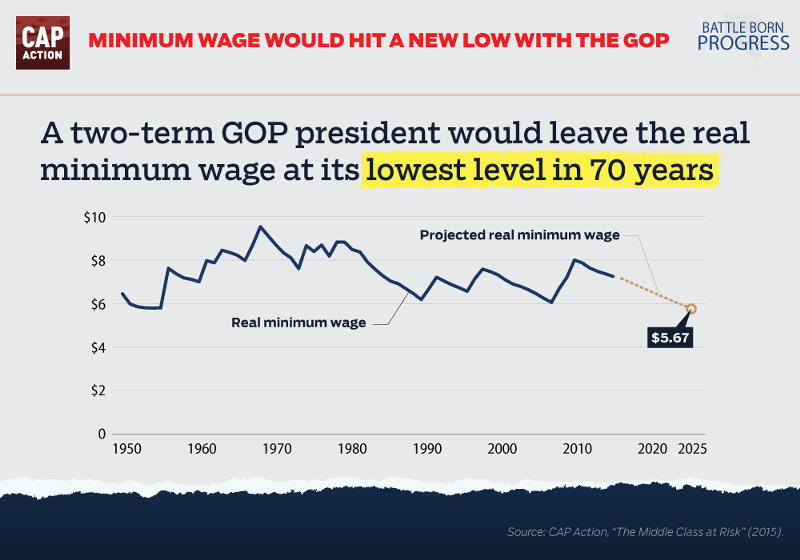Workers are working harder than ever, but are experiencing slow wage growth. Raising the minimum wage would increase wages for 35 million Americans and boost the economy: workers would have more money to spend, businesses would have more customers, and employers would be able to hire more employees. Unfortunately, all of the GOP presidential candidates oppose increasing the federal minimum wage and the party’s front-runner, Donald Trump, has even claimed that wages are too high.
Quick Facts: National
- 35 million workers in the United States would benefit from a $12 minimum wage by 2020. TWEET
- Women are more likely to benefit from a minimum wage increase, and a third of women workers who would be affected are moms. TWEET
- $15,080: How much a single parent working full-time, full year earning the minimum wage makes a year, which is less than the federal poverty line for a family of 2. TWEET
 Share on Twitter | Share on Facebook
Share on Twitter | Share on Facebook
- You know all that “sky is falling” rhetoric about what would happen if the US increased the minimum wage? Well, let’s see how that stands up:
Share on Twitter || Share on Facebook
- Almost 47 million Americans— nearly 15 percent of the population — lived in poverty in 2014. TWEET
- For people of color, the rate of poverty is even worse — 26.2 percent of African Americans, 23.6 percent of Hispanics and 28.3 percent of Native Americans lived in policy in 2014. TWEET